Our Stories
2021 Advent Prayer Guide
the coming
Come, oh light
break through the darkness
Come, oh darkness
bow to the light
Come, oh weary
find your rest in a manger
Come, oh rested
help a weary world rejoice
Fifth Week of Advent: God With Us | What’s Next?
Sunday, December 26, 2021
Emmanuel
It was all
wrapped up
in
cosmic pilgrimage,
the divine descent
into the marred
tragic mess
of humanity
In their heart
was a destination,
a foreseeing
of the universe renewed
But many steps
stood between
these worlds
And there would be
only one way-
surprising seed sown
from
strange imaginations
Entrance
by enfleshed
suffering
and surrender
First faltering
with skinned
knees,
then surefooted
through cross realities
One small step for God,
became one giant leap for humanity
They had come,
and would keep coming
into dusty downtrodden
spaces, anywhere
there was welcome,
poor-in-spirit places
In and through death
as radical amazement,
residing again
through every heart,
crack and crevice
of creation
There and back
and back again
yet pilgrim still
In monotony and momentous occasion both,
in the very fibres of our feet,
there is a presence
compassing our way
We travel infused
and surrounded
by our destination,
this way, this begin,
this resting,
Emmanuel
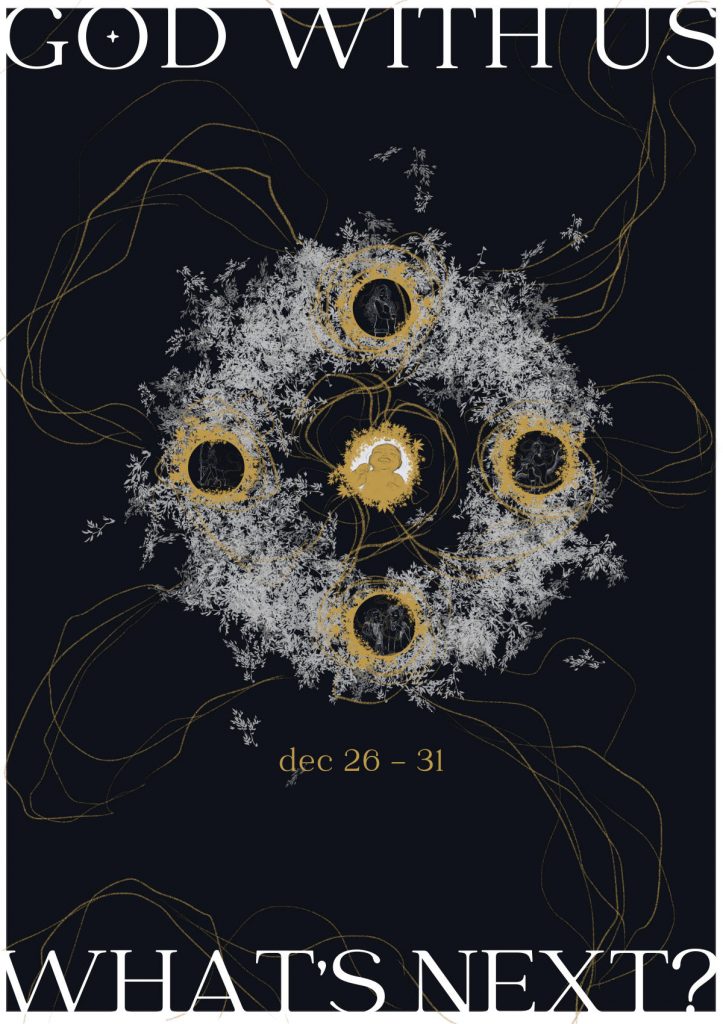
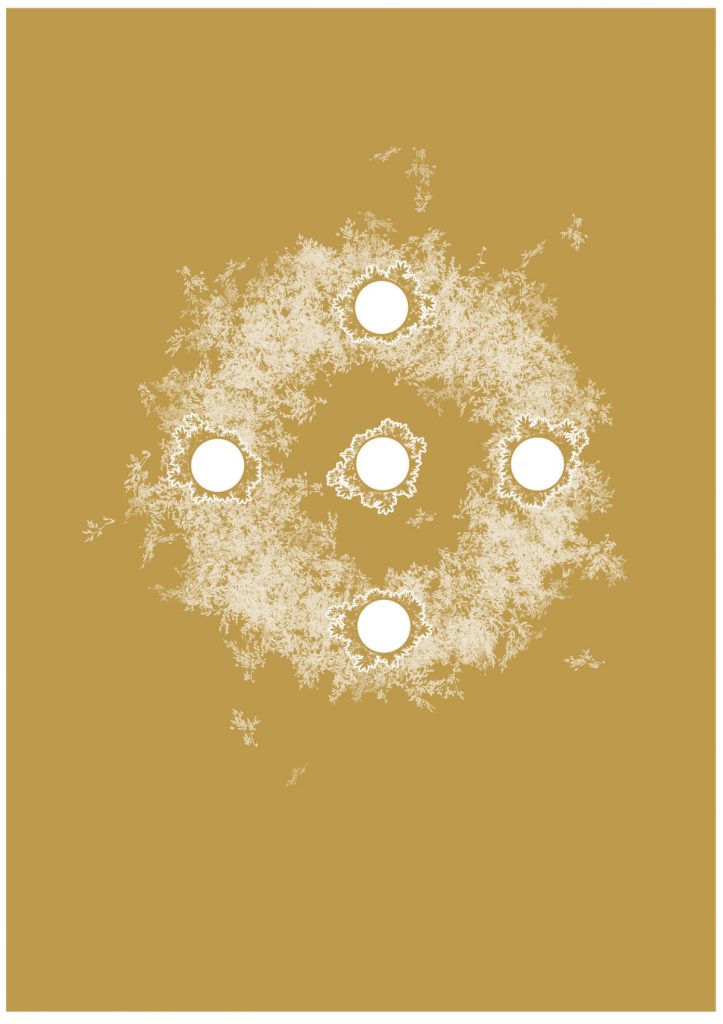
Monday, December 27, 2021
Scripture: Luke 2:1-3
Reflection: Tricia Chen
Campus Minister, Simon Fraser University
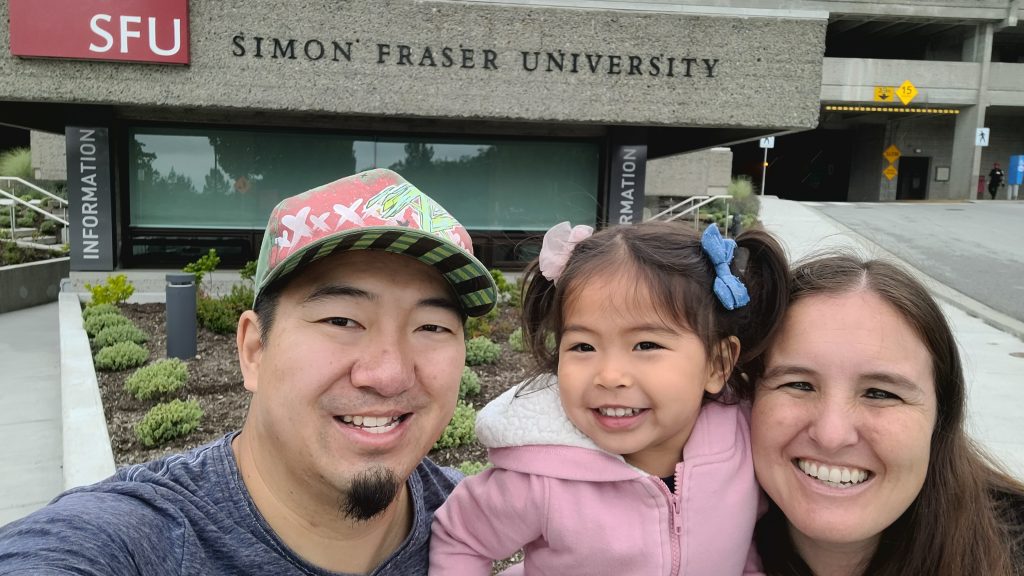
Waison, Charissa & Tricia Chen
Tuesday, December 28, 2021
Read: Acts 16:6-10
Wednesday, December 29, 2021
Read: Psalm 23
Thursday, December 30, 2021
Scripture: Isaiah 9:6
Reflection: Claudia Cisterna
Pioneer Camp Alberta
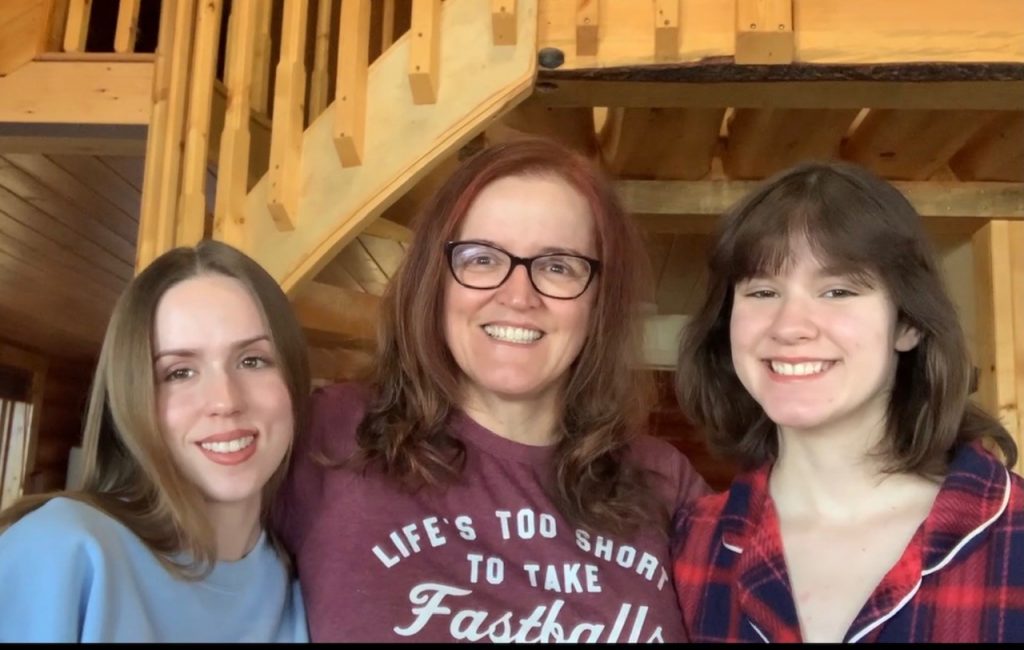
Julia, Claudia & Giovanna Cisterna
Friday, December 31, 2021
Read: Psalm 139:7-10
Fourth Week of Advent: Love & Worship
Sunday, December 19, 2021
Love
We couldn’t
have made it up
Our own minds
too dim
for its shining
But it was given,
and though
out of our grasp,
we can behold
its strange
imaginations
and welcome its
sure embrace
The sign was
from both
mighty angels
and a helpless
child-
living and breathing
There is nothing
static here,
no lofty theory
or abstract
philosophizing
It does not come,
but by a
movement of heart,
of active compassion
We only see it,
experience it
and know it
by it being given
and received.
And so
the divine triunity
is also a movement,
a dancing of
ever-expressing,
hand-in-hand
blessing in every direction
Never without
motion of their
gracious heart
embracing
they have surrounded
and embedded
themselves
into all things
so that
even amidst
the parsing of particles,
and the telescoping
of quasars and
black holes,
their movement
of love
may be
glimpsed,
revealed,
and shared
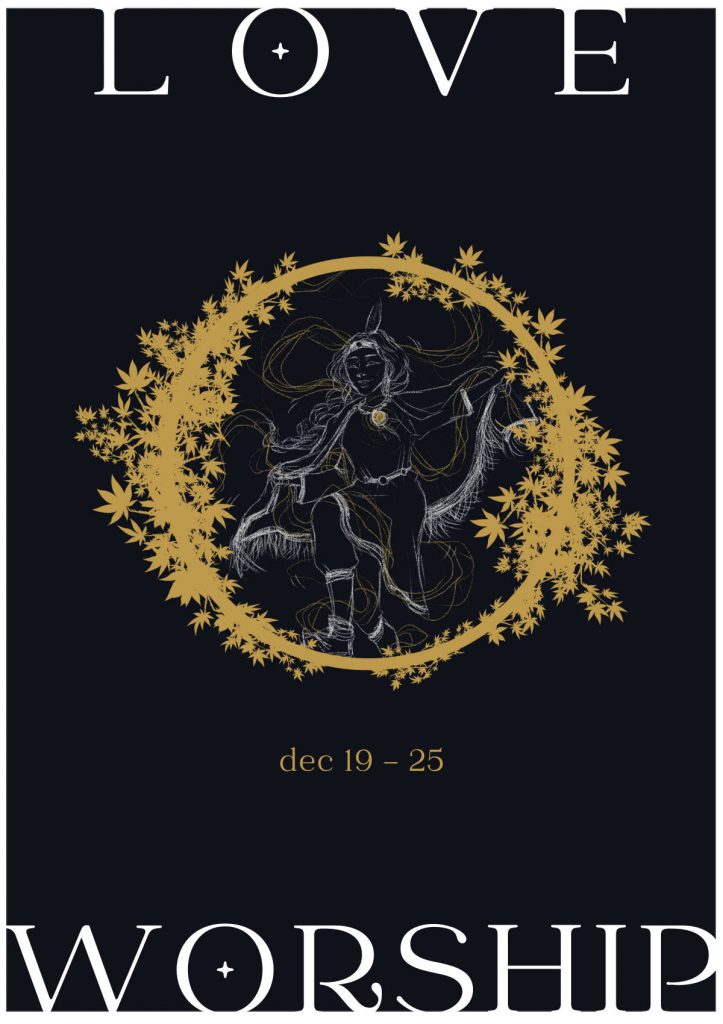

Monday, December 20, 2021
Reflection: Dave Birrell
Campus Staff, University of Winnipeg
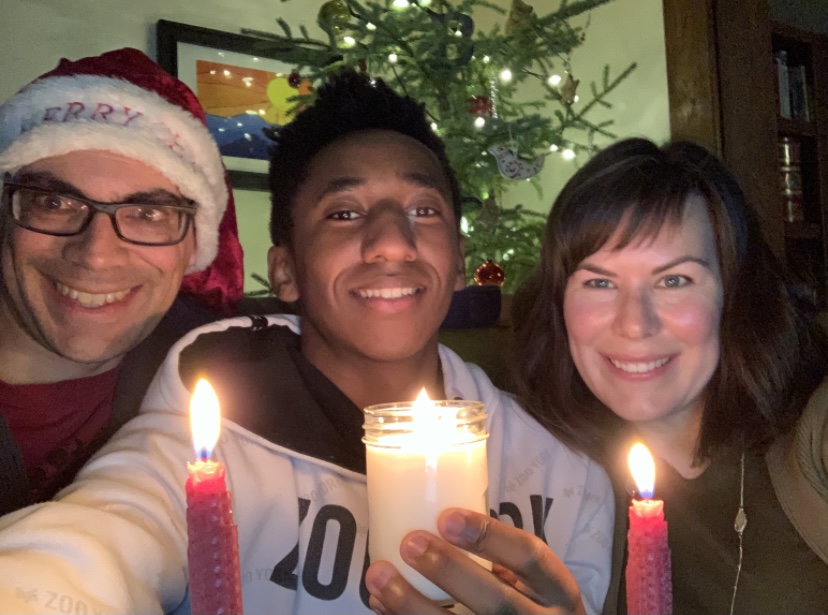
Dave, Bereket & Shanlee Birrell
To paraphrase Khalil Gibran in his book The Prophet:
Is not [worship] all deeds and all reflection,
And that which is neither deed nor reflection, but a wonder and a surprise…
Who can separate his faith from his actions, or his belief from his occupations?
Who can spread his hours before him, saying, “This for God and this for myself
This for my soul, and this other for my body?”
Waiting? Worship.
Walking? Worship.
Wonder? Yes, beautiful worship as well!
That it will soon drown in the song not sung in vain
I feel thunder in the sky
I see the sky about to rain
And with the prairies I am calling out Your name
Reflection questions
How do the seasons affect, inform and/or enhance your worship?
Tuesday, December 21, 2021
Scripture: 41:17-20
and there is none,
and their tongue is parched with thirst,
I the LORD will answer them;
I the God of Israel will not forsake them.
I will open rivers on the bare heights,
and fountains in the midst of the valleys.
I will make the wilderness a pool of water,
and the dry land springs of water.
I will put in the wilderness the cedar,
the acacia, the myrtle, and the olive.
I will set in the desert the cypress,
the plane and the pine together,
that they may see and know,
may consider and understand together,
that the hand of the LORD has done this,
the Holy One of Israel has created it.
How do you need to prepare yourself both to receive this from God and to be at work in restoring others with God?
Wednesday, December 22, 2021
Scripture: Psalm 148:7-13
you great sea creatures and all deeps,
fire and hail, snow and mist,
stormy wind fulfilling his word!
fruit trees and all cedars!
Beasts and all livestock,
creeping things and flying birds!
princes and all rulers of the earth!
Young men and maidens together,
old men and children!
for his name alone is exalted;
his majesty is above earth and heaven.
Spiritual Exercise:
Thursday, December 23, 2021
On Christmas Day, on Christmas Day
I saw three ships come sailing in
On Christmas Day in the morning
On Christmas Day, on Christmas Day?
And what was in those ships all three
On Christmas Day in the morning?
On Christmas Day, on Christmas Day
Our Savior Christ and His lady
On Christmas Day in the morning
On Christmas Day, on Christmas Day
Pray, wither sailed those ships all three
On Christmas Day in the morning
On Christmas Day, on Christmas Day
O, they sailed into Bethlehem
On Christmas Day in the morning
On Christmas Day, on Christmas Day
And all the bells on Earth shall ring
On Christmas Day in the morning
On Christmas Day, on Christmas Day
And let us all rejoice as sing
On Christmas Day in the morning
On Christmas Day, on Christmas Day
And let us all rejoice as sing
On Christmas Day in the morning
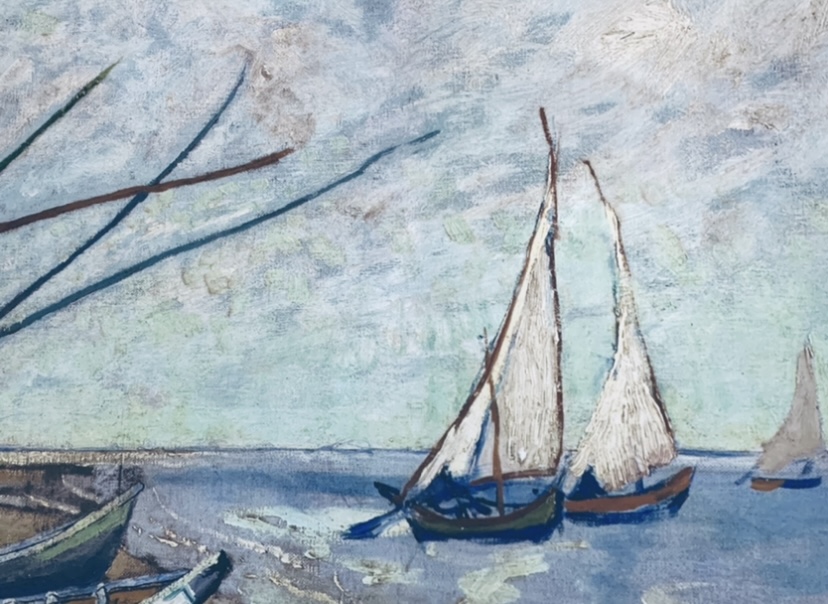
from Van Goh Emersion, Winnipeg 2020
Christmas Eve
Friday, December 24, 2021
Scripture: Colossians 3:12-17
Christmas Day
Saturday, December 25, 2021
Oh tragic birth, with your coming
the universe disrupted. The sure course
now in disarray — a cataclysmic catastrophe
breaking in and breaking down.
The ancient prophecies foretelling something
no one understood, strange imaginations
beyond the grasp of mere mortal thought.
Confounding the centuries of
stargazers, diviners and burning bushes.
It was a breath-taking and bitter surprise,
born through the dark journey,
the darkness of wombing laments.
Dust and divinity caught up again,
strangely enlivened by their otherness.
You did not come as we would have liked –
No privileges at the door, but
surrounded by the pulsating cries of injustice,
the blood of innocent babes.
Creating enemies in your first steps,
fleeing from tyrants bent on
your destruction — powers that were
unwilling to bend a knee.
Powers that were not ready for your
frightening entrance,
but ready or not you came,
in obscurity, in flesh and blood–
this coming that confronted all counterfeits.
Oh the tragedy in the blindness of dominion
Oh the tragedy of your dividing sword
Oh the tragedy of a world in rebellion
Oh the tragedy of a baby born as king
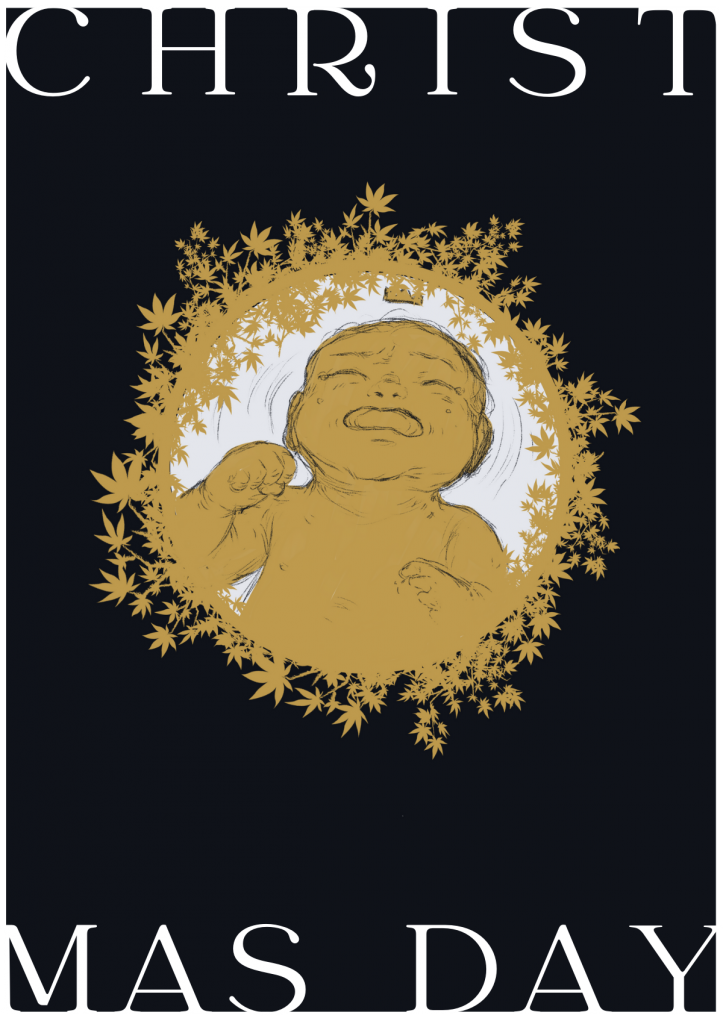
Special Needs Director, Pioneer Camp Ontario
My job provides me with some unique opportunities. I get to spend a lot of time with people who have special needs. Some cannot walk, others are unable to speak. Those who can speak, often have limited words or need prompting to engage in conversation. Many are unable to dress themselves. Although each individual is different, they have been grouped together because they all bear characteristics which are seen as weak.
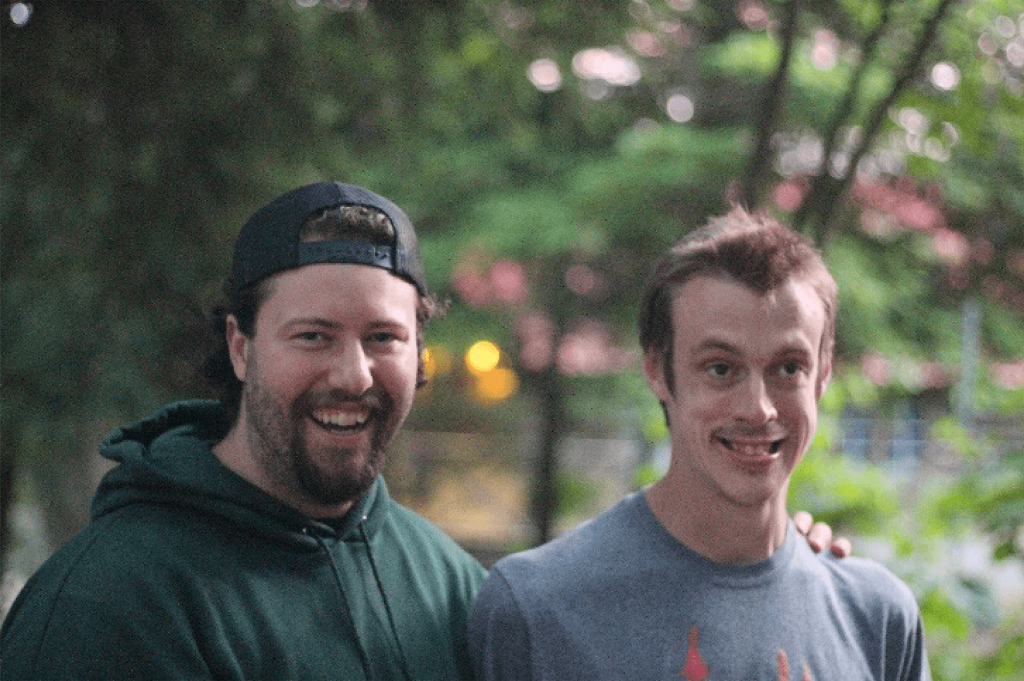
Ned & Harry
Human weakness is not characteristic of a select group only; it is a defining trait for us all. Each of us are limited, each of us are unable. It does not benefit us to forget this although we are inclined to push it from our minds. We often prefer to believe the lie that we are strong rather than embrace the truth that we are weak
Christmas is God’s great answer to our great weakness. Christ did not come because we were finally good enough but because we had no hope without Him. Christ knew that we were unable to complete our own to-do lists let alone save our own souls.
Christmas reminds me that I am weak but deeply loved. In my weakness, I do not need to fear this dark and frightening world but rather be comforted that my God came to live with me in it. It is in this darkness where the contrast of God’s light is greatest, and it is in our weakness where his power is made perfect.
Where in your life might you be denying your own weakness? How might you let Christ meet you there?
But God chose the foolish things of the world to shame the wise; God chose the weak things of the world to shame the strong. (1 Corinthians 1:27)
Third Week of Advent: Joy & Wonder
Sunday, December 12, 2021
Joy
One day
it will be
all we know,
trees bursting
forth with
a royal welcome
But here
and now
the fig tree
is dying
There is devastation
of the incarnation
desecration of
sacred lands and
sacred lives
The list of crimes
is never-ending
with despair and cynicism
always hiring,
and enslaving,
and embittering
Is there some
undercurrent here
deeper than
the pain and sorrow?
Something strengthening
underneath
that could uphold
this mess?
Maybe our efforts
need to go downward,
a rugged search
and surrender
to uncover this treasure
hidden underground
-true riches
and true gift.
As we behold it,
there comes
illumination
If we
descend
as one with
strange
imaginations,
inspired
towards singing,
long-suffering
and dances
of praise.
We know
a lot less of it
now,
but it is present
within us –
as a tension
an oddity,
a lifeline
and a prayer.
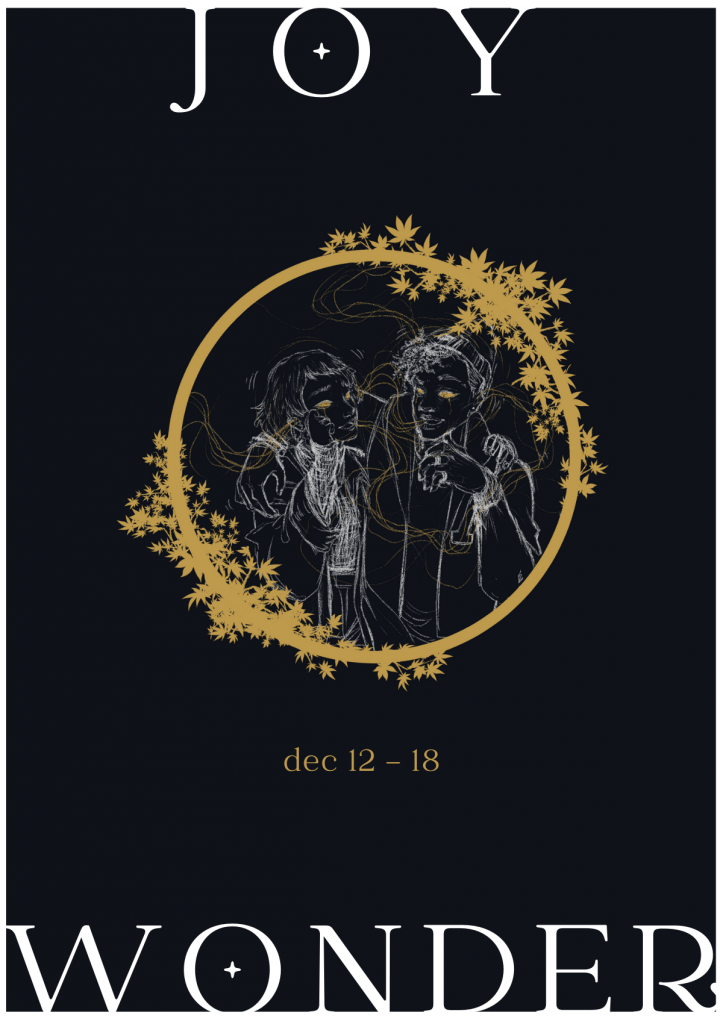

Monday, December 13, 2021
Reflection: Christy Frost
National Resource Team
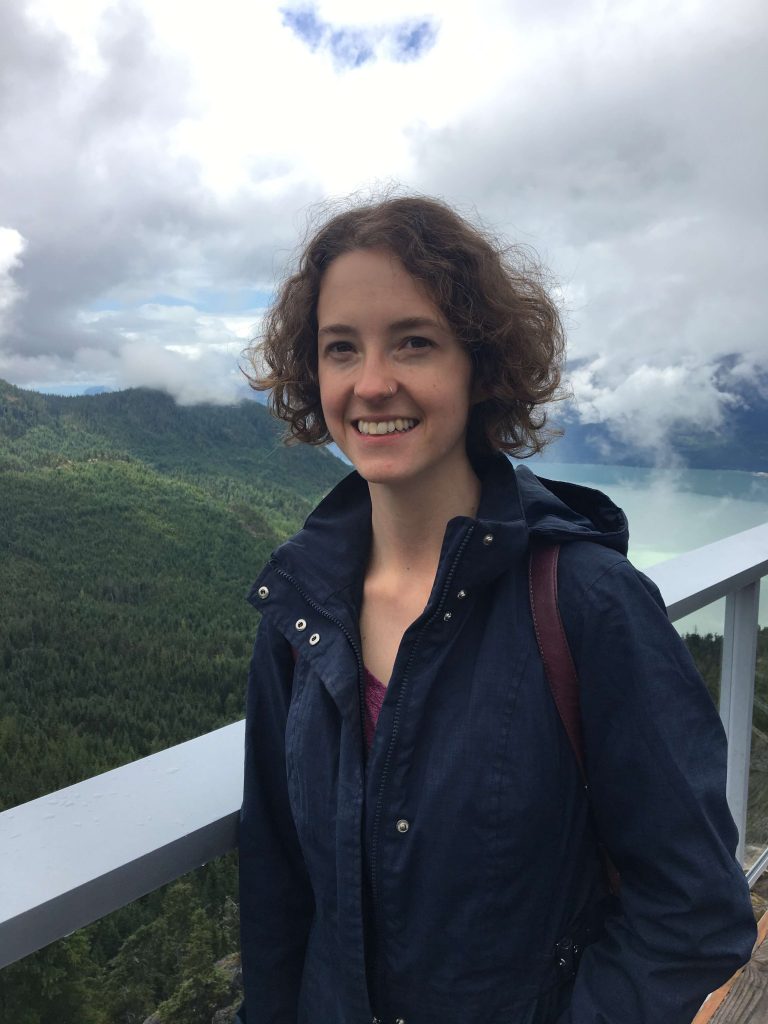
Tuesday, December 14, 2021
Scripture: 1 Peter 1:2-9
Wednesday, December 15, 2021
Scripture: Luke 1:46-56
Thursday, December 16, 2021
Scripture: Psalm 86:1-13
Reflection: Katharine Beaven (Delo)
Pioneer Camp Ontario
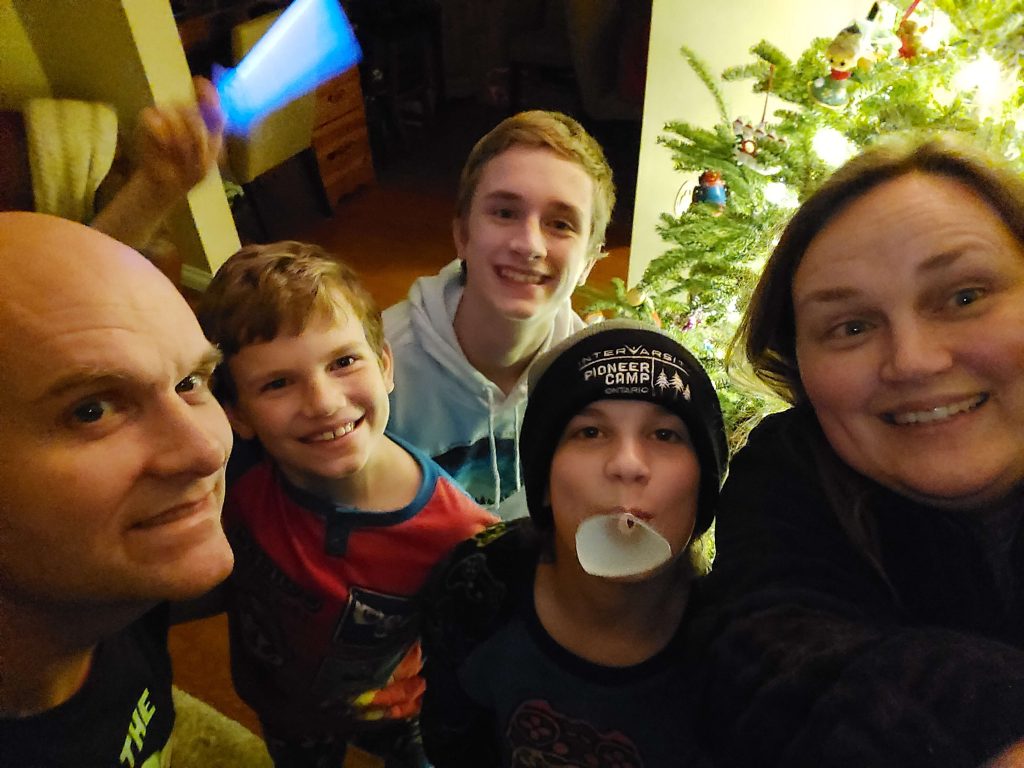
Darrin, Theodore, Alexander, Sebastian, Katharine
Friday, December 17, 2021
Scripture: 1 John 5:1-5, 13-15
Second Week of Advent: Peace & Walking
Sunday, December 5, 2021
Peace
Shalom is a soiled way
It does not hover
detached from harsh realities
Though consumed by evil
it presses back in resistance,
breaks through rock
and hardened hearts
It stills the madness
of a world hurtling
towards cliffs edge,
standing as signpost
to solid ground
It meets between
enemy lines,
beating in time
with the hearts
of all humanity,
seeking to inspire
strange imaginations
that all
could be
made well
again.
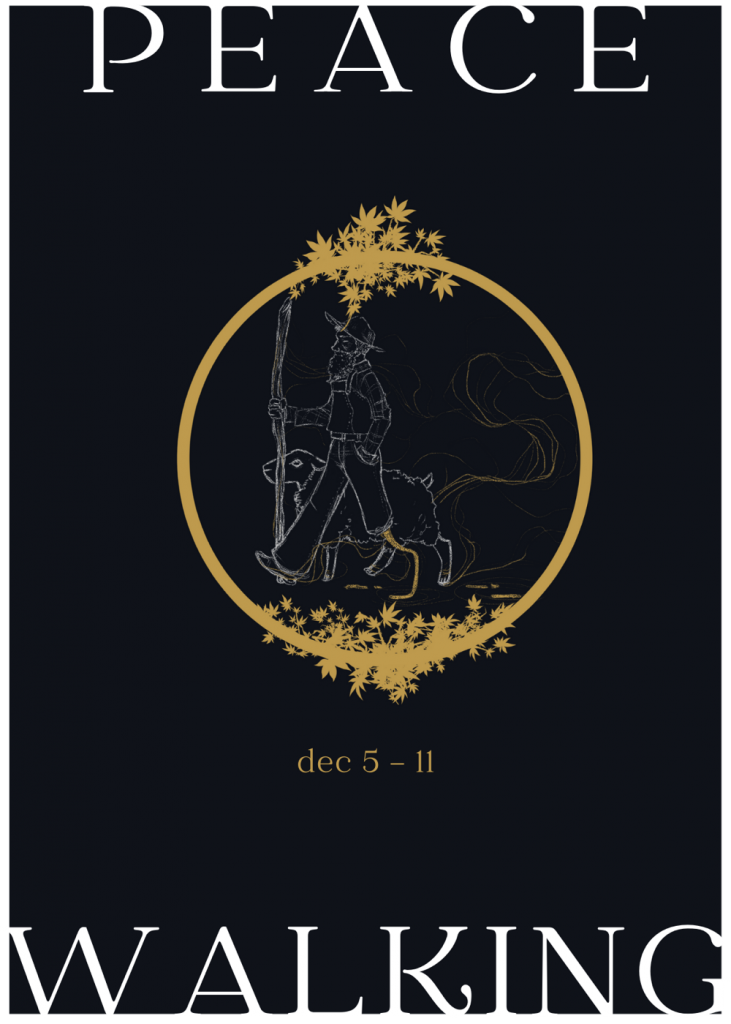
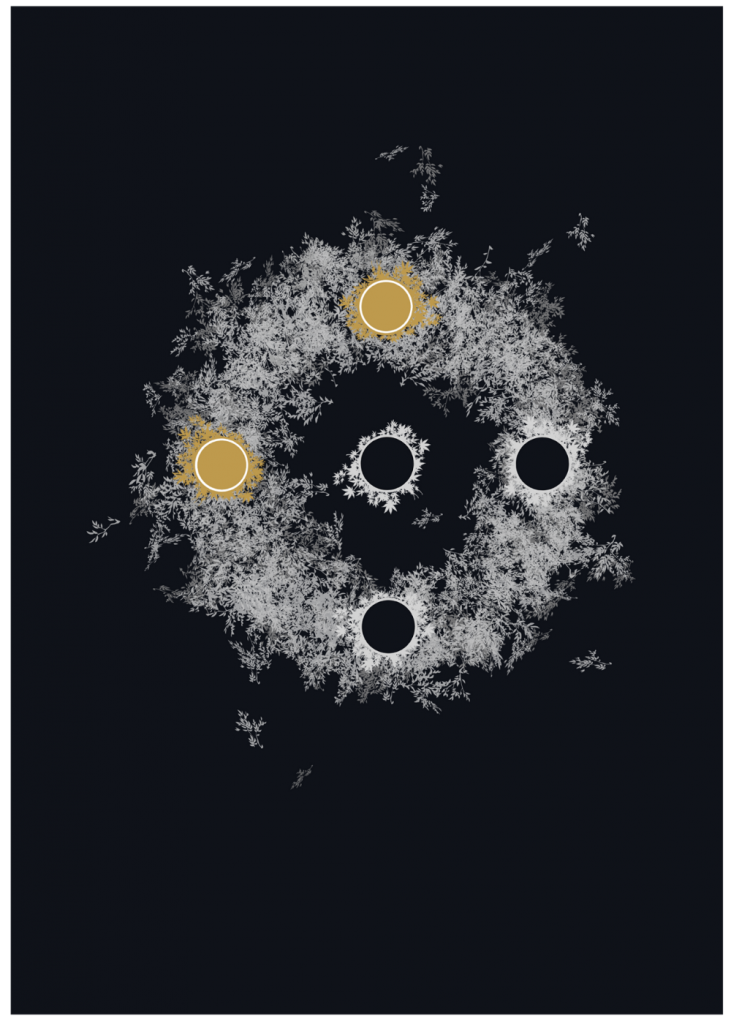
Monday, December 6, 2021
Reflection: Susie Colby,
Senior Consultant
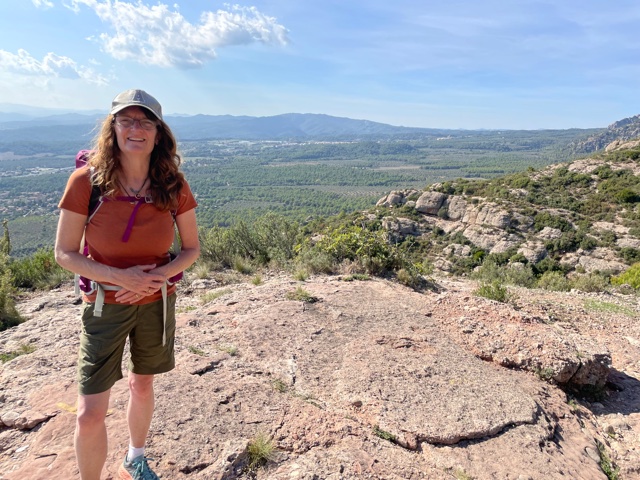
Wise men walked a long way to brig gifts, then walked a longer way round on the return trip.
Joseph, Mary with baby Jesus walked (or ran!) to Egypt fleeing Herod.
I wonder what bird built that nest.
I wonder if Queen Isabel, who 1000 years ago sponsored its building, ever set foot upon the bridge I am now crossing
I wonder if that café has a washroom.
Tuesday, December 7, 2021
Do an errand on foot. How much longer does it take than had you accomplished your task using transit or biking or driving? Notice whose path you cross.
Wednesday, December 8, 2021
Go on a walk without pre-determining your destination. Where do you go? What or who leads you?
Thursday, December 9, 2021
Reflection: Rachael Hildebrandt,
Program Director Circle Square Ranch, Spruce Woods
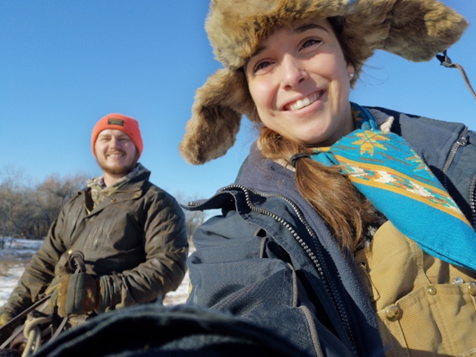
Chris & Rachael Hildebrandt
No relationships would mean I don’t belong with anyone.
No animals would mean I would have to find happiness elsewhere.
No stuff would mean I’d have to learn to cope with life on my own.
Friday, December 10, 2021
Take a walk with one or more of the characters from Christmas story. Imagine yourself Joseph walking with Mary to Bethlehem, or a shepherd scurrying to the edge of town, or a wise person on a long journey to honour a newborn king. What questions, dreams, hopes and concerns accompany you?
First Week of Advent: Hope & Waiting
Sunday, November 28, 2021
Hope
It first comes
just as a whisper,
a far-off echo
from some distant land
Then,
breath upon
dying embers,
hovering,
searching for
some lighted
coal to be revealed-
a flicker of flame!
With sure breath
from deep places,
strange imaginations
are lit
that pierce through
dulled darkness
It is as much
a doubtful matter
as it is a faith-filled matter
A fragile egg
the heights of
cedar branches,
so easily
dashed,
deafened and defaced
It struggles
to emerge from
infancy to
first steps
without being
kicked to the curb
But when it is found,
and one is found within it,
then as a furnace
it fills every room
and finds a way out
of every open window.
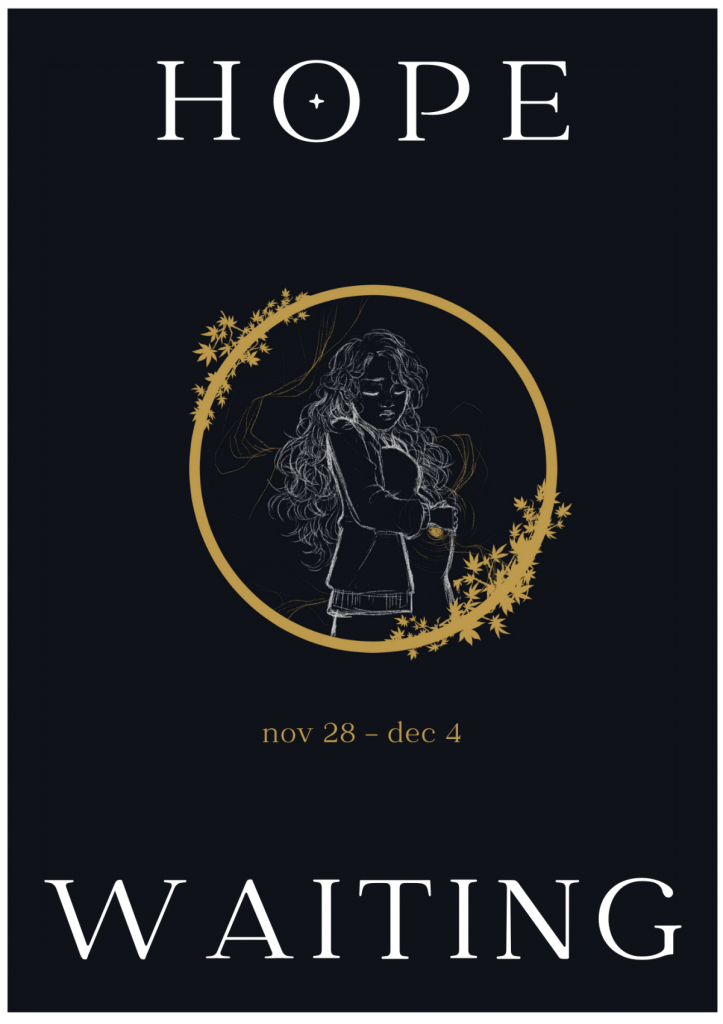
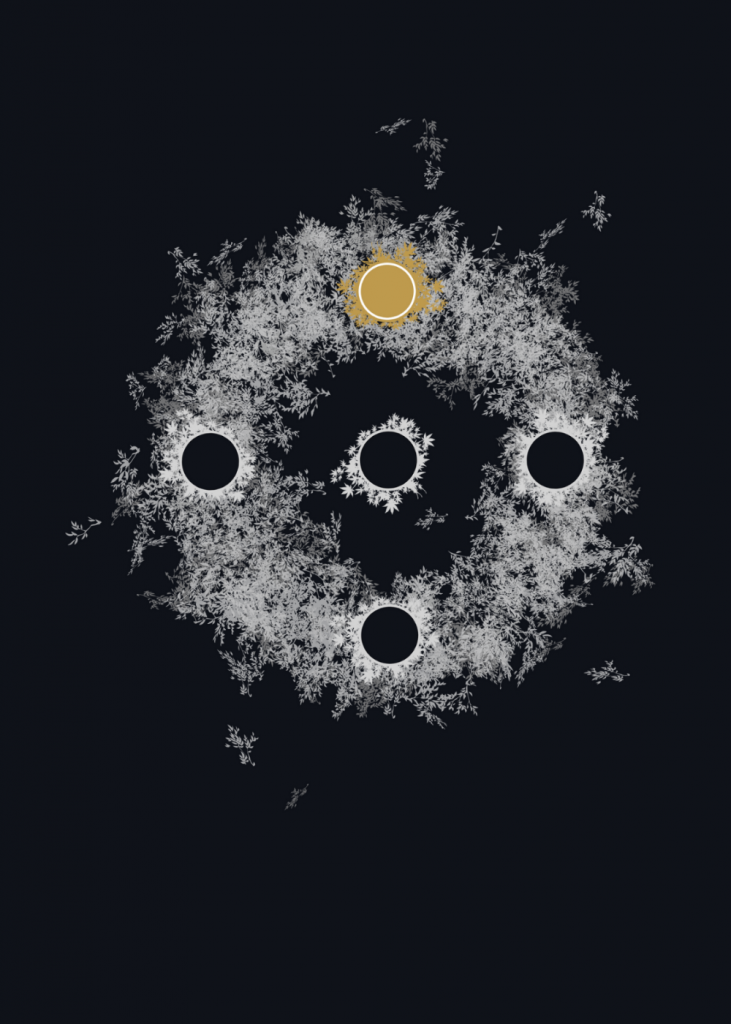
Monday, November 29, 2021
Reflection: Mel Chook Reid,
Eastern Ontario Campus Director
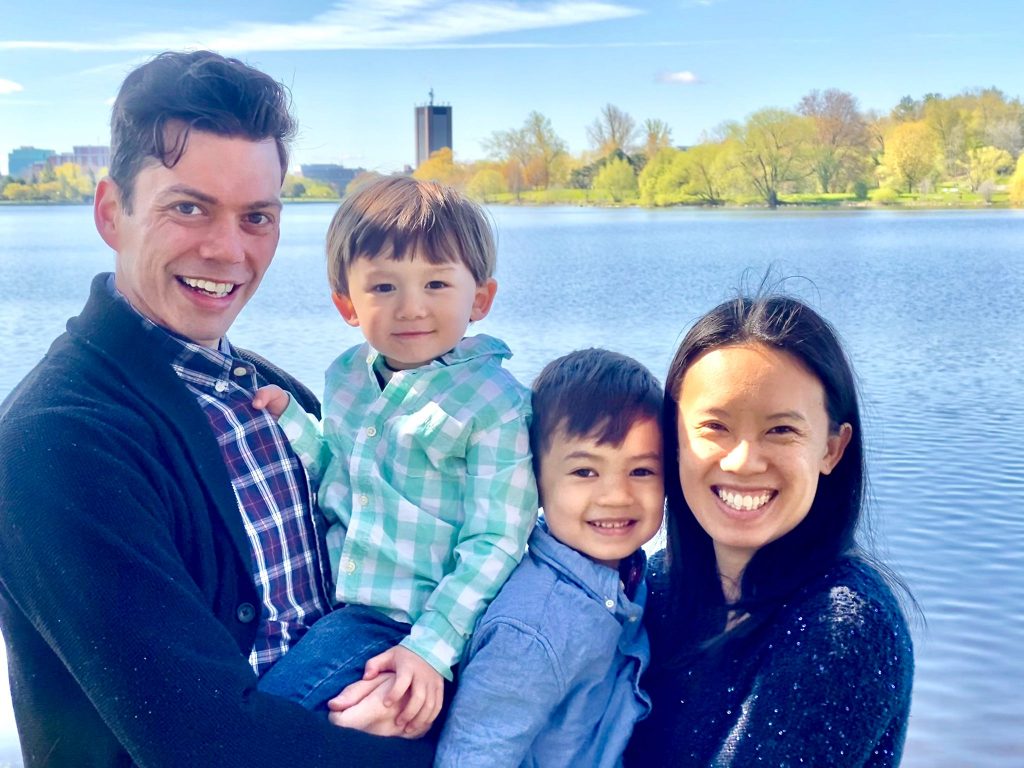
Dan, Elliott, Marcus, and Melody Chook Reid
Tuesday, November 30, 2021
Reflection: Kaleb Earl
InterVarsity Alumnus
Scripture: Isaiah 40:3-11

Wednesday, December 1, 2021
Reflection: Debbie Baird
National Resource Team
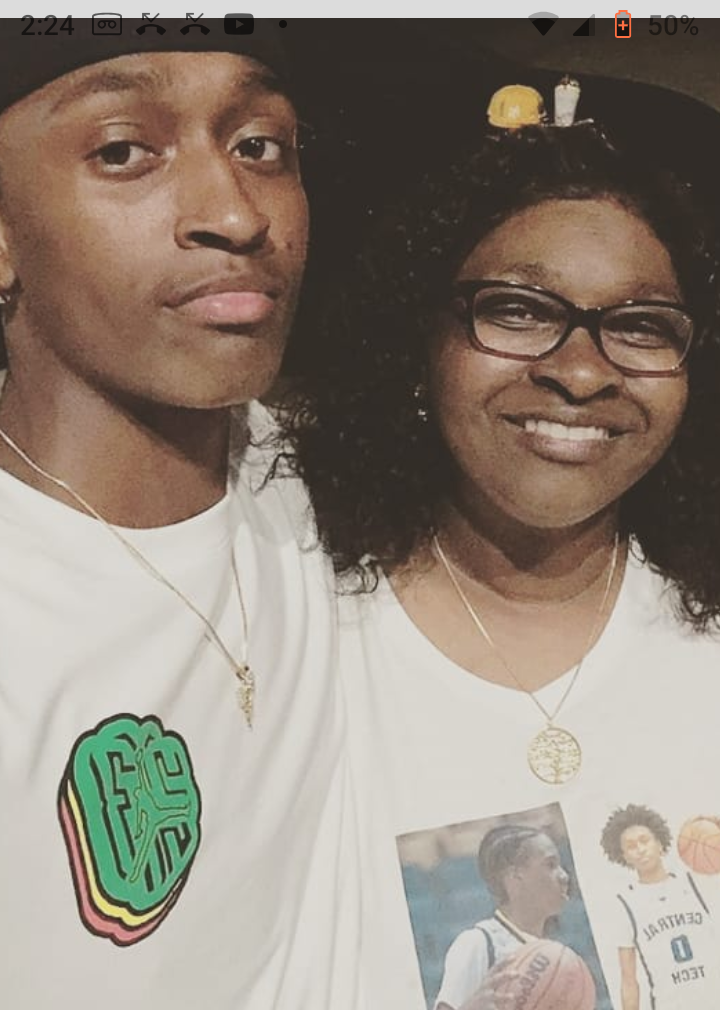
Grandson Malachi & Debbie
Thursday, December 2, 2021
Reflection: Tony Lai
Campus Minister with International Student Ministry
University of Toronto, Scarborough
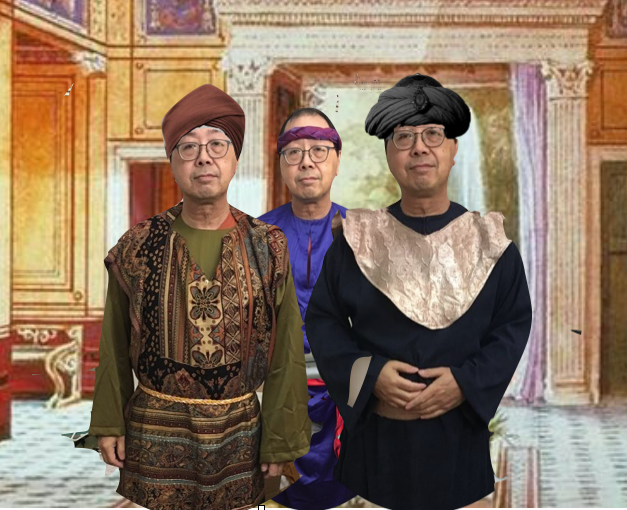
Tony, Tony, and Tony
Somewhere out there is a place that’s cool
Where peace and balance are the rule
Working toward a future like some kind of mystic jewel
And waiting for a miracle
Friday, December 3, 2021
Reflection: Deirdre Walters
Campus Minister at Carleton University
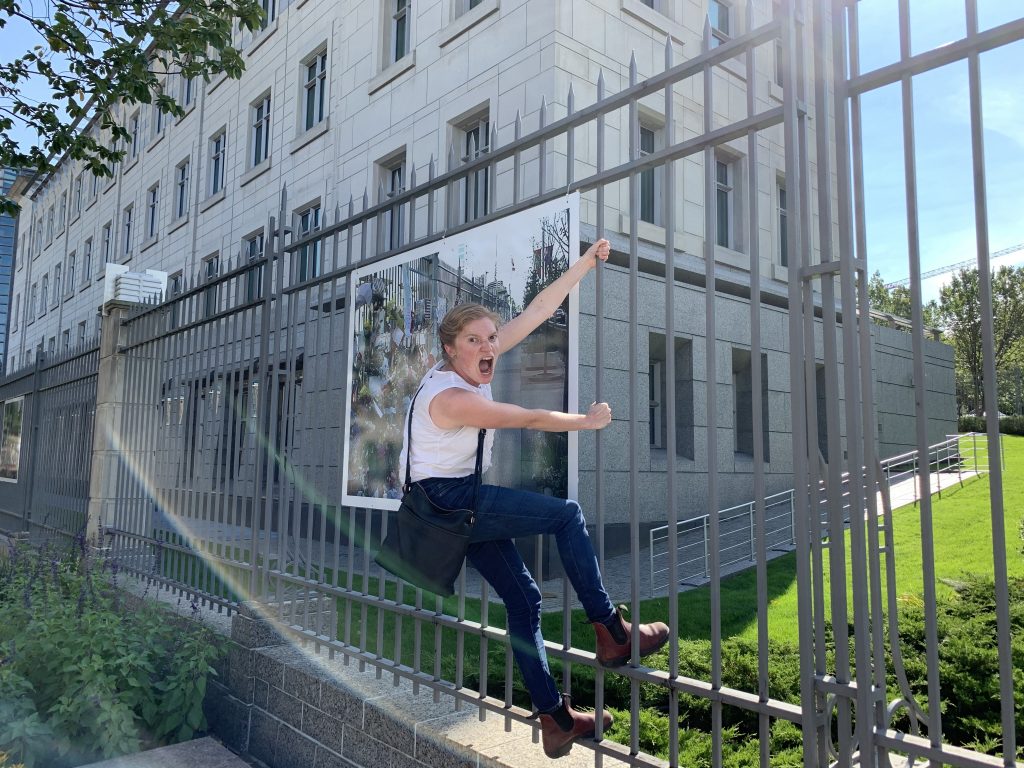
Yes, this is how I actually feel about waiting.
Meet the Artists
Poetry by Matthew Church
Campus Minister, University of Victoria (On Leave)
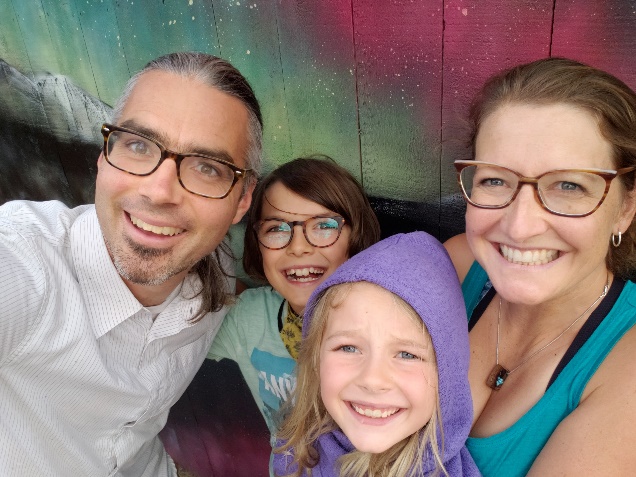
Matthew, Jasper, Libby & Jill Church
In a world with discord, strife and conflict, it is strange to imagine peace.
In a world with sorrow, tragic loss, and endless human rights abuses, it is strange to imagine joy.
In a world with apathetic consumerism, neo-colonial politics, and race riots, it is strange to imagine love.
In a world with tribal gods, militant religious action, and secular elimination of Spirit, it is strange to imagine, God with us.
It may be strange…
but it has been strangeness all along that has remade this world again and again even until today
But maybe in this strangeness, we might find a truer turn.
Campus Minister, University of Manitoba









